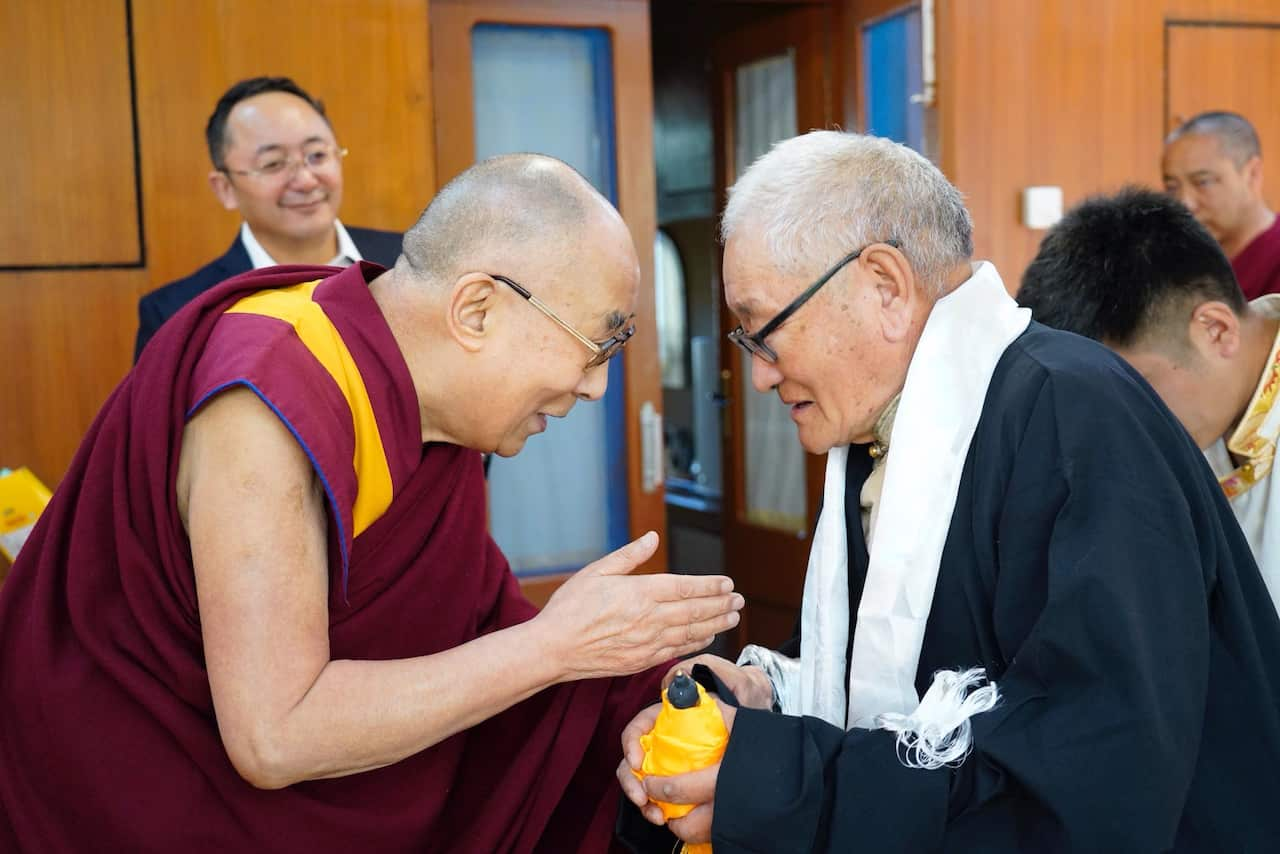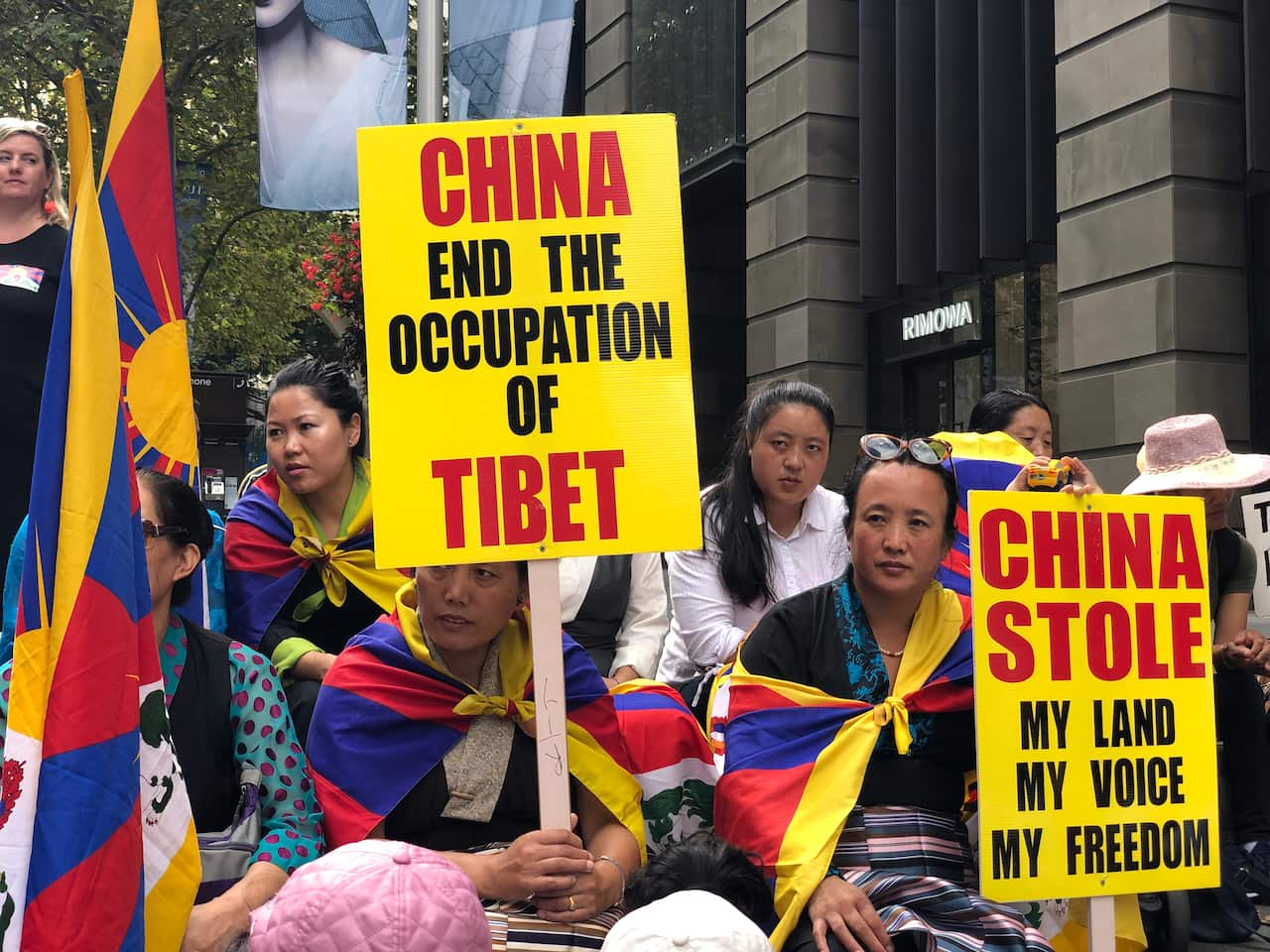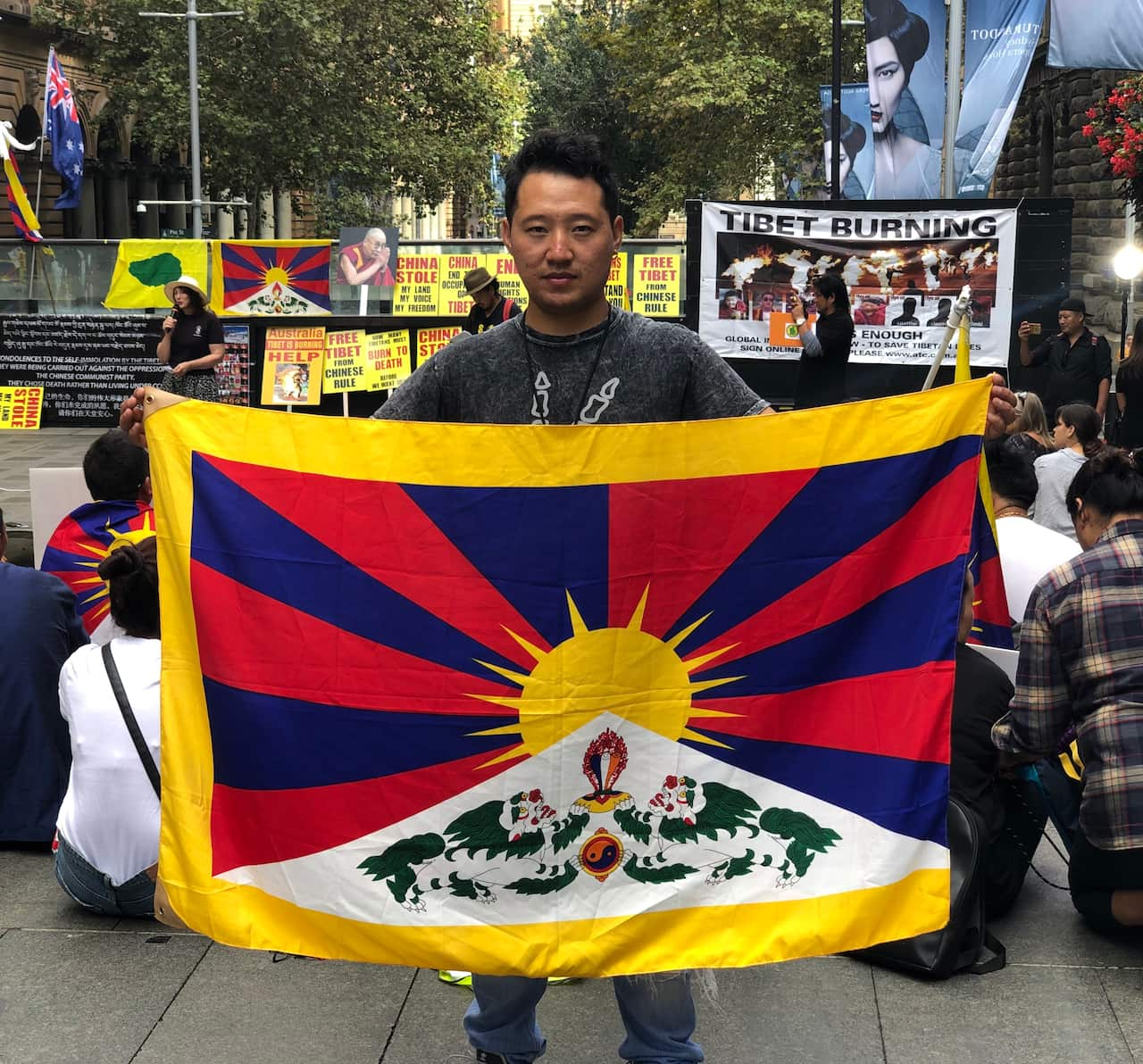“My father always told me that I should be ready to give up everything for our land,” Phakchok Gonpa, who goes by Abo Gaga (meaning ‘loving brother’) tells SBS Tibetan. “That included my life, because we can never accept China’s sovereignty over Tibet.”
Abo Gaga is a 78-year-old veteran of the struggle for Tibetan freedom. He had joined the armed resistance in the Eastern Tibetan city of Chamdo in 1958. At 17 years of age, he fought Chinese troops head-on with an outdated rifle.
The conflict of the late 1950s in Tibet culminated in the 1959 Lhasa uprising in the Tibetan capital, which saw the Dalai Lama to India.
Belonging to a traditional nomadic family, Abo Gaga was hugely influenced by his father, a well-respected local community leader. Yet he was shot and killed fighting the Chinese, and even in his death, he told the young Abo Gaga, “Never surrender and keep on fighting.”
“We have truth on our side and no other weapon is greater than truth.”
After two years of fighting Abo Gaga was captured and imprisoned for 20 years only to be released in late 1979. By then, the communist party had taken over Tibet and the Dalai Lama had escaped to India.

Abo Gaga recalls the first time he heard of the Dalai Lama’s escape to India while he was on the battlefield. He tells SBS Tibetan that the Tibetan fighters took the news with optimism.
“It was sad but for us it meant new hope,” he says. “Hope of Tibet’s continuity under the leadership of His Holiness [the Dalai Lama].”
After his release, Abo Gaga escaped Tibet to India via Bhutan. He had initially planned on returning back to Tibet after receiving some guidance but ended up meeting the Dalai Lama — something he never dreamt of while serving his prison sentence. The Dalai Lama advised him to stay in India and serve the government-in-exile.
“His Holiness told me that returning would bring more prison terms and more torture,” he says.
Today, only a handful of Tibetan elders who actually took part in the 1959 Lhasa uprising remain. But the sense of national loss has transcended generations and the scars of past continues in young Tibetans, as seen at the weekend demonstrations across the country commemorating the 60th anniversary of the uprising.

Tenzin Rabsel, 22, is a young Tibetan living in Sydney. He left his parents in Tibet when he was seven and escaped to India. Rabsel hasn’t seen his parents ever since. He says he misses them and wishes to be reunited with his family in Tibet.
“As a Tibetan, I should be in Tibet now,” he says. “But China invaded Tibet. They came to my country, killed my people, exploited my land’s resources and they are torturing my people. This is totally unacceptable in the 21st century.”
Rabsel says he doesn’t take the freedom he enjoys in Australia for granted because his fellow Tibetans are deprived of basic human rights and freedom.
“As a Tibetan living in a free world, it drives me to use my freedom to highlight the ongoing repression in Tibet,” says Rabsel.

Shel Gendun Tsering, or Sherge, 28, is a writer now living in the Blue Mountains in New South Wales. He was pursued by Chinese authorities for penning bold essays that criticised China’s policies in Tibet. Eventually, he fled to India in 2011, a few years after the 2008 Beijing Olympics, during which he had written those critical essays and the crackdown on ethnic minorities across China intensified.
“I’m here to send a clear message to China that until and unless they give us our freedom back, we will continue to resist,” he tells SBS Tibetan. “My parents have raised their voice against Chinese occupation, I am raising my voice and the future generation of young Tibetans will continue to resist.”
Sherge teaches Tibetan language to Tibetan kids to contribute to his local community, and assure continuity of culture. Along with local residents, he successfully lobbied the local council at Katoomba to raise the Tibetan flag outside its chamber to mark the 60th anniversary of Chinese occupation.
Abo Gaga now leads a quiet life on Sydney’s Northern Beaches with his family. He tells SBS Tibetan that even after 60 years has passed, he hasn’t given up hope of a free Tibet.
“We have truth on our side and no other weapon is greater than truth,” he says. “Whatever China is doing to ethnic minorities, including the Uighurs, is out there in the open for the world to see.”
Rabsel agrees with Abo Gaga and calls for unity amongst the Tibetans in their long fight against China, an economic giant.
“If we are in this together, we can reclaim our freedom one day,” he said.
Sherge urges the younger generation of Tibetans to prize the value of “the rich Tibetan language” and to engage with local communities to mobilise stronger support.

